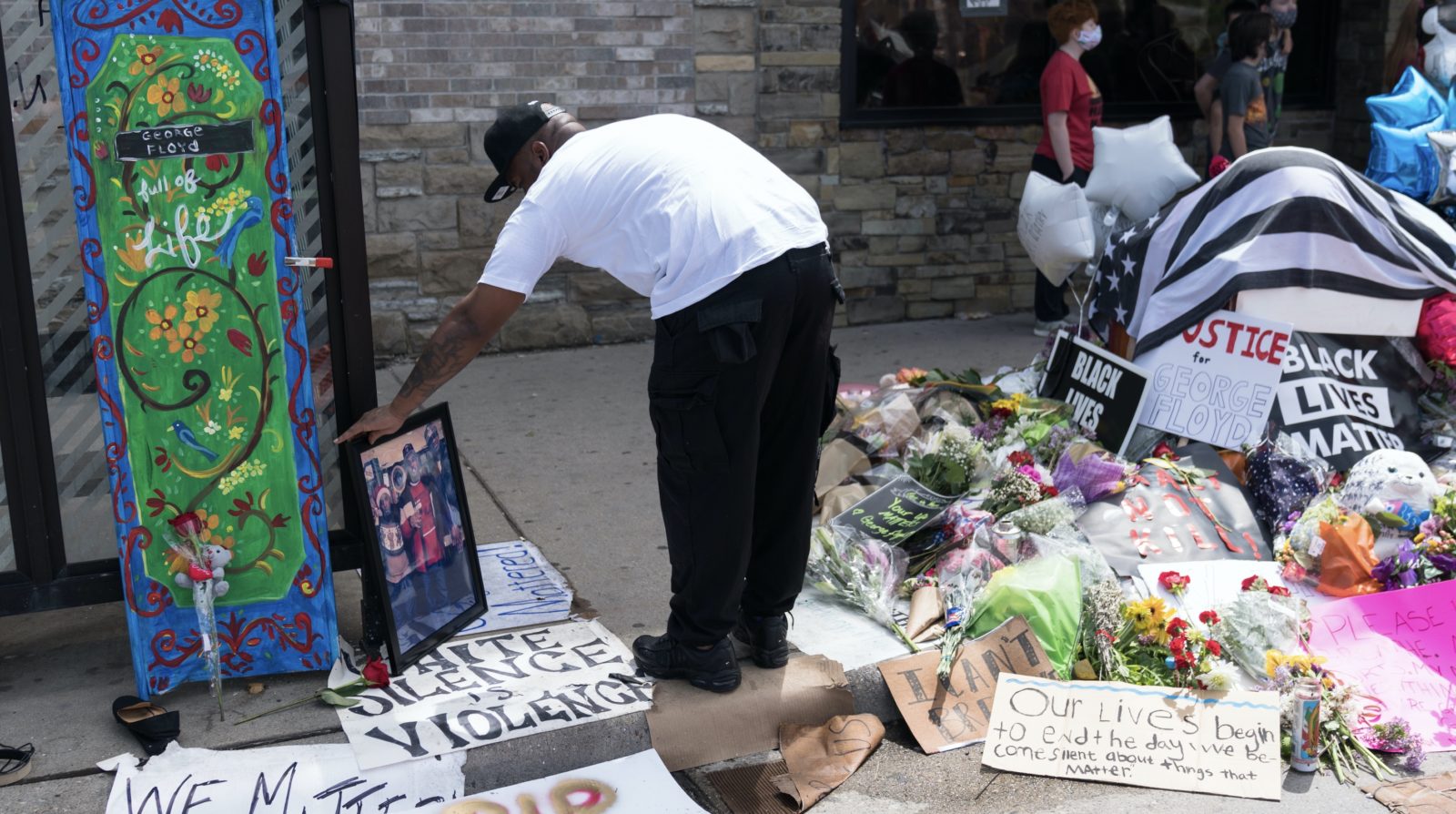Racism, Evolution, and Human Exceptionalism
Published at Evolution News
Some, like our friend and colleague Michael Medved, have seen a complex “design” at work in history. Certainly, the knotting in the present situation in the United States is so complex — the pandemic, the lockdown, the economic catastrophe, the death of George Floyd, the protests, the riots and looting, now the curfews, what next? — as to be nearly impossible to untangle.
Certain threads in the events of recent months suggest the hand of a skilled novelist. Think of the role played by an elementary physiological process, breathing. We’ve seen a virus that terrifies because it robs victims of breath, masks to protect us from the virus that themselves impede breathing, a lockdown that suffocates enterprise even as it brings fresh breathable air to cities because people stop driving their cars, a brutal death in which the victim pleads, “I can’t breathe,” pepper spray to disperse unruly protests that, again, works because it makes it takes one’s breath away.
The tapestry of the moment extends further back in time. An article in the Wall Street Journal on Tuesday reported the death of a woman who was the last recipient of a veteran’s pension from the Union Army. The veteran was her father. The reminder that the Civil War was not so long ago struck me, too, as a storyteller’s touch. Slavery, racism, sectional division — these forces that drove America’s greatest conflict remain powerful and raw.
Who Can Analyze It All?
From this tangle of motifs, Wesley Smith of the Center on Human Exceptionalism extracts one lesson relevant to our mission here: that the exceptional place of man in nature is a rebuke to racism.
From “Racism Violates Human Exceptionalism,” at the Humanize blog:
From a human exceptionalist perspective, racism is evil because it treats inherent equals as if they are unequal. And in the fiction, the racist justifies discriminating against, denigrating, and/or objectifying the targeted victim based on the fallacy that “the other’s” life is somehow less important or worth valuing. For people of faith, racism also rejects the victim as being equally made in the likeness and image of God. Talk about hubris!
Racism also violates our duties to love and respect each other simply and merely because we are human. Discriminatory behavior violates our duty as human beings to treat each other as we would want to be treated ourselves. Bigotry is an unacceptable form of withholding. It denies the mutual love we each owe to — and are entitled to receive from — all.
George Floyd is dead because the police officer who pinned his neck to the ground wanted to dominate his prisoner, perhaps because of Floyd’s race — or maybe, simply because the officer, drunk with his own power, simply thought he could. Domination — when not temporarily engaged to prevent danger or thwart harmful actions — is a gross abuse of authority. It denies the respect we are each owed, and in a non-proper policing context, impedes human freedom.
The Themes of the Hour
Discrimination versus dignity, respect versus domination, freedom and creativity versus suffocation, ordered liberty versus the human zoo — these are all the motifs of the hour. And looked at from a height, they are the themes of Discovery Institute’s programs.
Recognizing the intelligent design in life is an antidote to the most negative ideas circulating in our culture. By contrast, seeing human beings as natural flotsam, tossed up by a random, unplanned material process without purpose or meaning, can contribute nothing positive. It only degrades and impoverishes.
The scientific debate about evolution can be set alongside the cultural impact of evolutionary thinking, uncovered in Discovery Institute documentaries like Human Zoos and The Biology of the Second Reich. A direct line connects Charles Darwin himself with these downstream effects.
In The Descent of Man, Darwin emphasized that humans are only animals in the end: “Man is constructed on the same general type or model with other mammals.” “There is no fundamental difference between man and the higher mammals in their mental faculties.” There is nothing special about our origins: “I have at least,” he wrote, “as I hope, done good service in aiding to overthrow the dogma of separate creations.” From his observations, Darwin drew the conclusion of a racial hierarchy with Africans at the bottom. He predicted that “The civilized races of man will almost certainly exterminate and replace the savage races through the world.”
Darwinian racism, with its denial of mankind’s exceptional status, flowed like a river into the textbooks that American high school biology students learned from for decades. Only the civil rights movement began to turn that river backward. Martin Luther King Jr. understood the influence of scientific materialism on scientific racism and, as Discovery Institute’s John West has noted here, he “spoke forcefully against the idea that humans are the products of a blind material process.” The design in U.S. history, which we’re living through right now, can’t be understood without due regard for this crucial background.
Photo: A tribute to George Floyd, Minneapolis, by Lorie Shaull / CC BY-SA.
